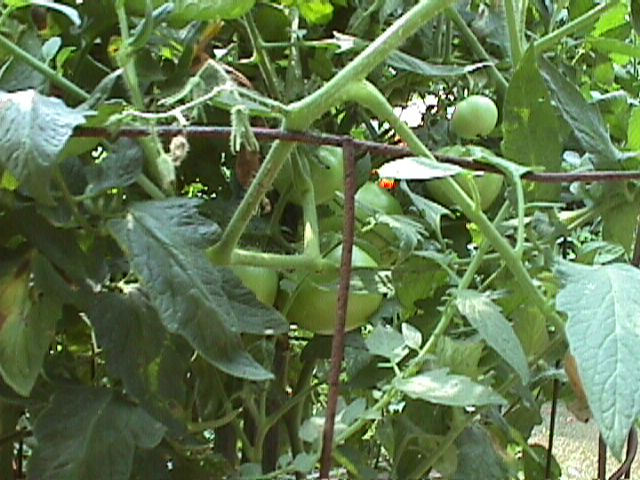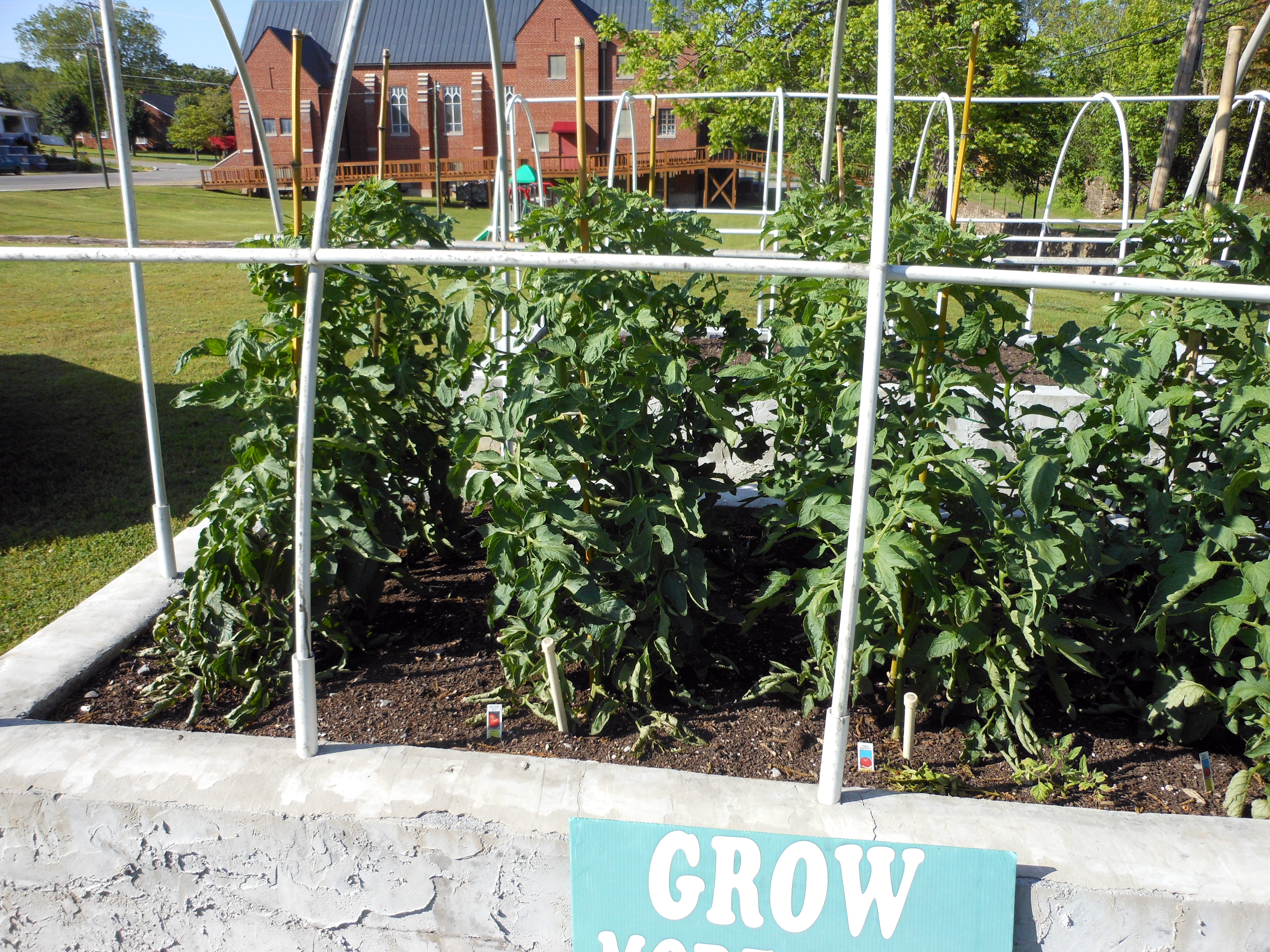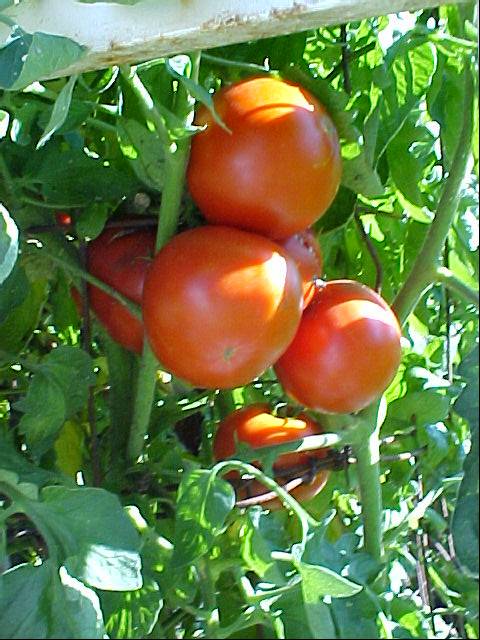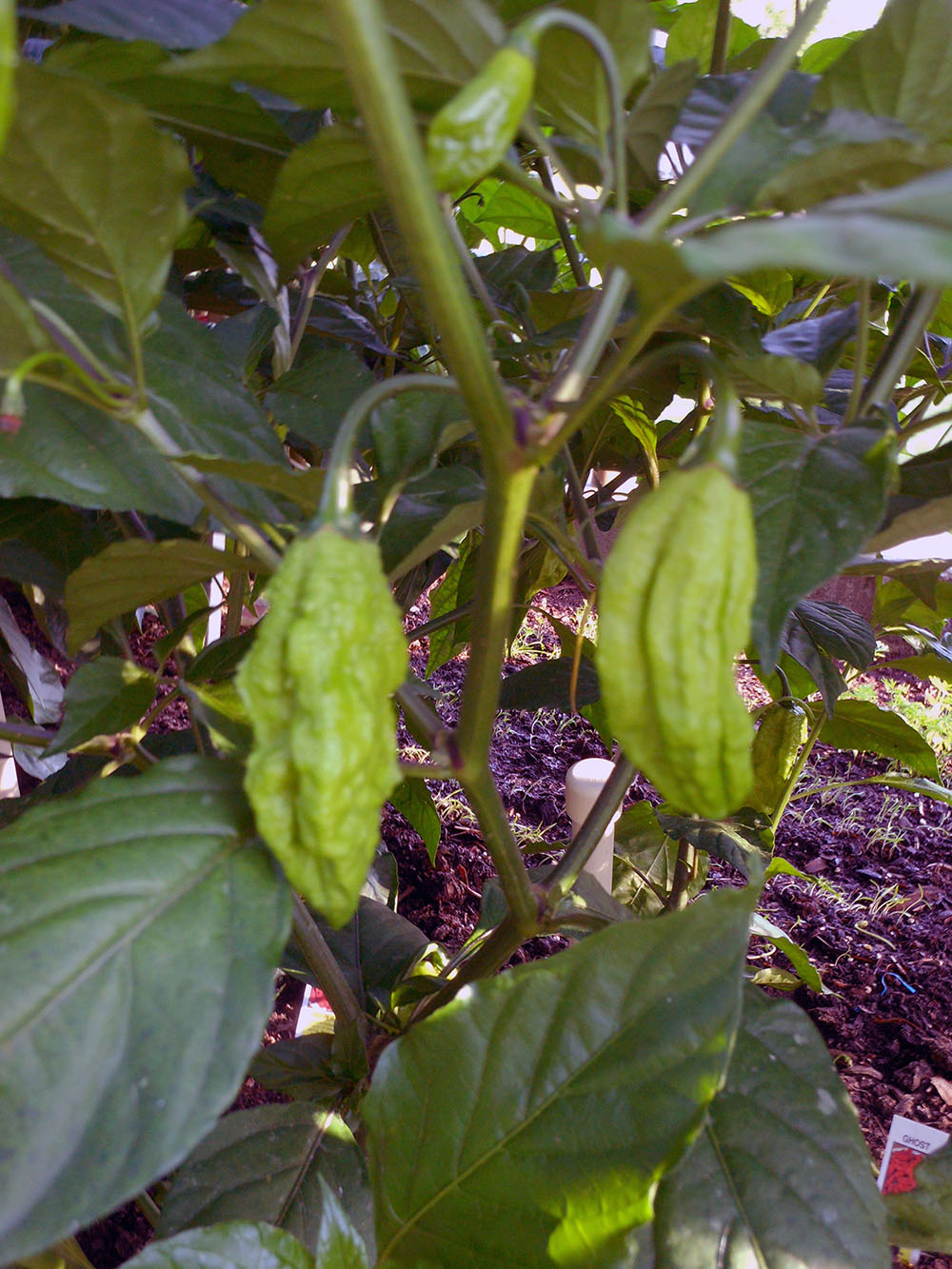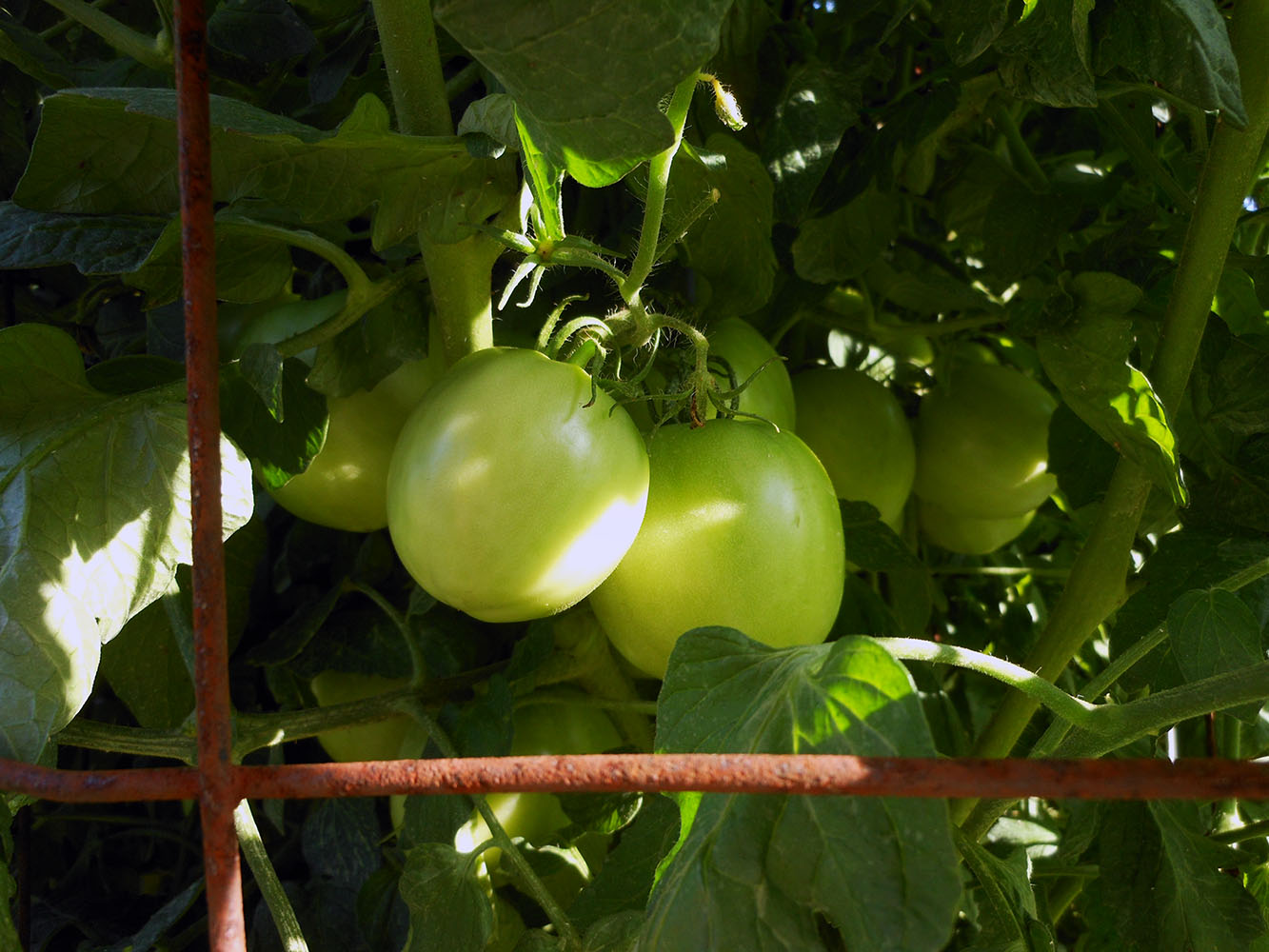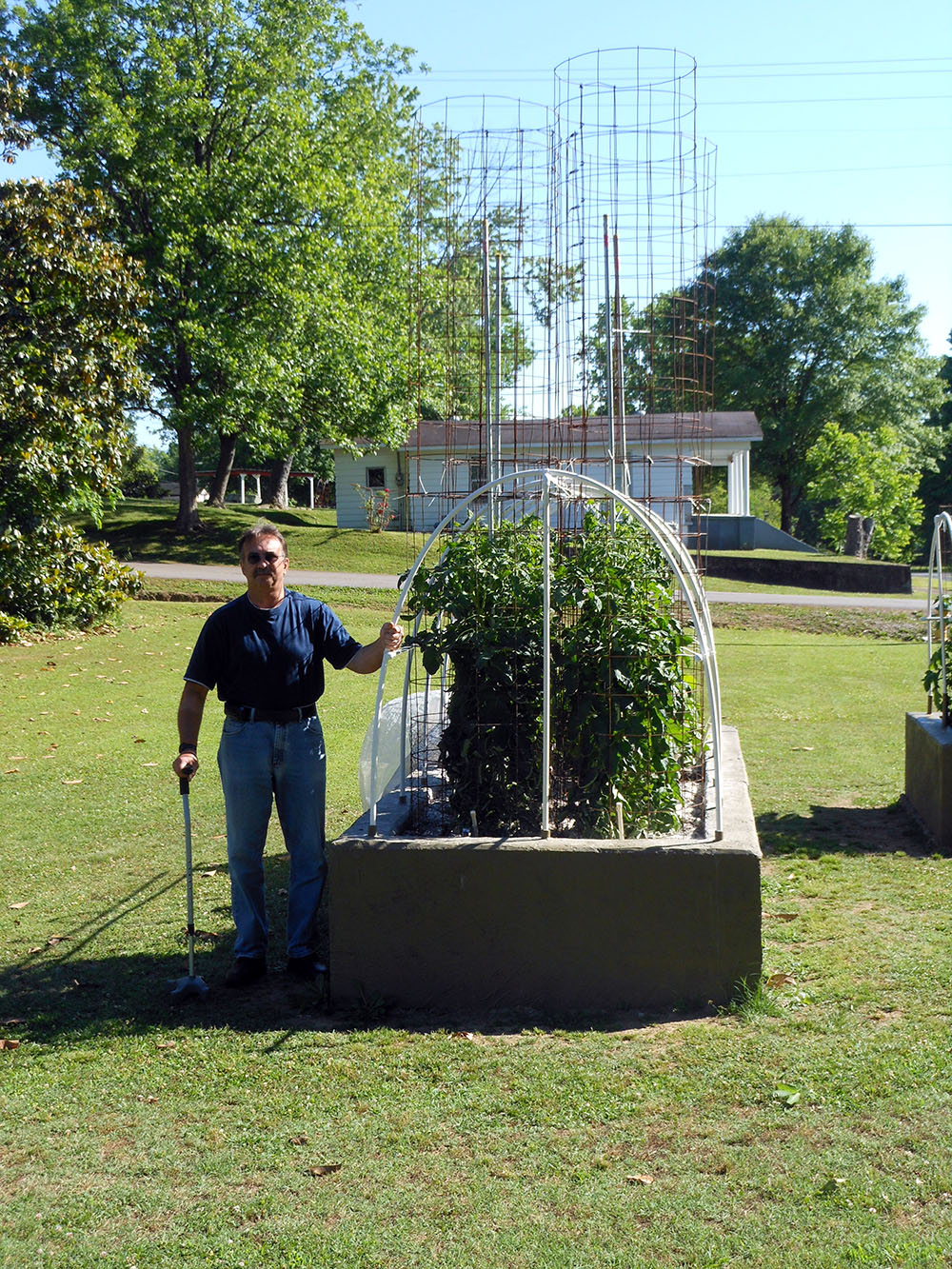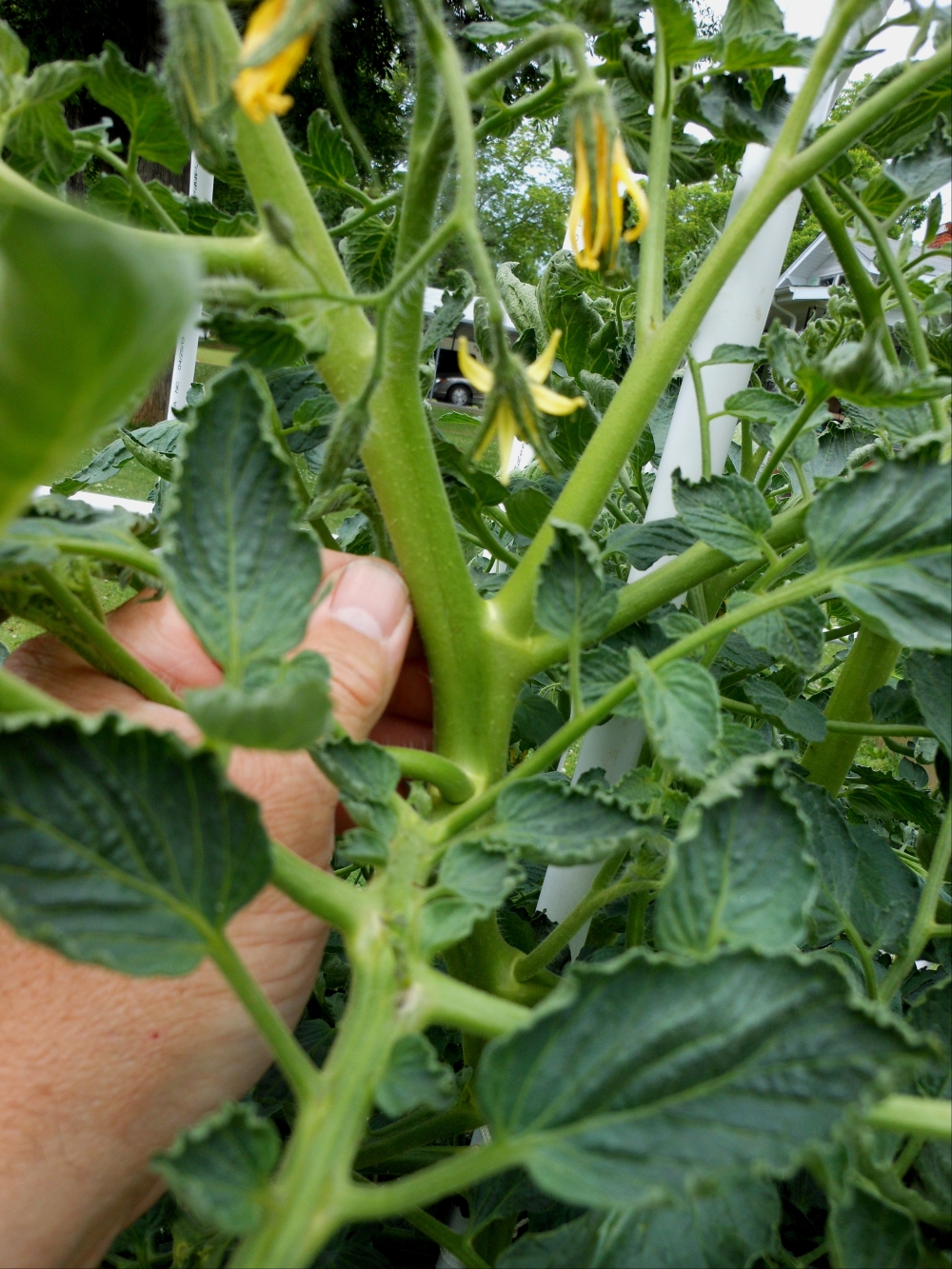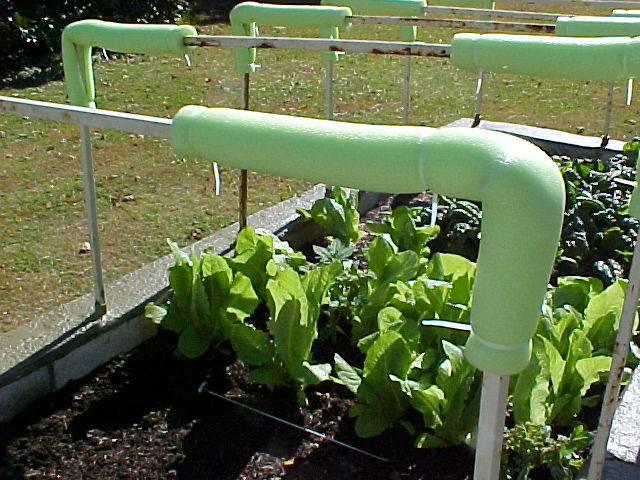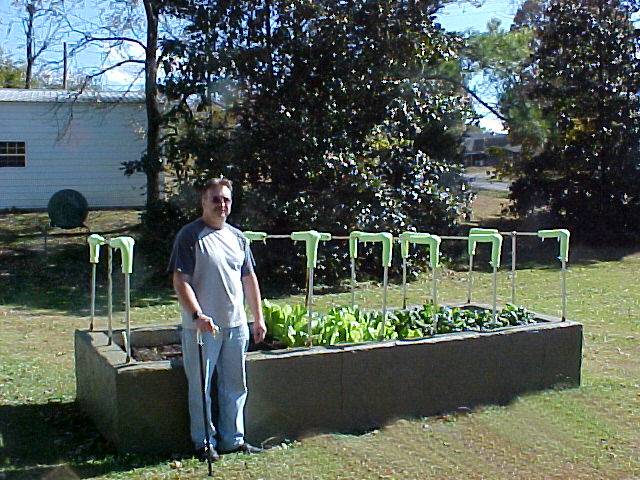READ THIS ARTICLE
US Farmers Fighting Drought May Have Hope Yet

US Farmers that are currently fighting ongoing drought, particularly in California, may have hope yet thanks to one man’s ingenious invention.
Jon Dewey has developed several water devices for growing and gardening, including his Patented WaterStick that allows farmers to grow more food using 75 percent less water. For example, this method allowed him to successfully grow, on average, 150-200 pounds of tomatoes per plant using a mere half gallon of water, whereas normal growing methods would require at least two to three gallons of water.
By bypassing the six to eight inches of soil above the root ball of a plant using the WaterStick, farmers can let their crops quench their thirst even during periods of drought.
Not to mention his follow-up invention, the MultiPlant WaterStick, which may be more attractive to farmers in that it can water and fertilize multiple small plants over a much bigger area.
“I can’t say I have the answer to fix the drought, but some of my inventions could really help people who live in drought states grow food for their families using very little water,” he recently told Nature World News. (Scroll to read on…)

According to a recent report from the Intergovernmental Panel on Climate Change (IPCC), climate change has already lead to global crop yields decreasing by a net average of four to five percent annually, with that drop expected to worsen as the climate continues to change.
And while some farmers may be skeptical about climate change, it is clear that some of their management practices may need to change if they want to survive.
“Farmers are by necessity very focused on short-term weather, in-season decisions and managing immediate risks,” Lois Wright Morton, a sociology expert at Iowa State University, said in a statement. “They’re thinking about when they can get in their field to do what they need to do, rather than looking 20 to 30 years down the road… Initiating conversations about adaptive management is more effective than talking about the causes.”
A World in Drought
Using better farming and gardening methods such as Dewey’s WaterStick could not be more important than in California, where residents are currently experiencing a three-year drought that is the worst the region has seen in more than a millennium. And according to a NASA-led study, if California is to ever recover from a lack of rain, it is going to have to gain 11 trillion gallons of water back somehow – sufficient enough to support the water needs of the state and its extensive agricultural industry.
“It takes years to get into a drought of this severity, and it will likely take many more… to crawl out of it,” Jay Famiglietti of NASA’s Jet Propulsion Laboratory said in a news release.
But farmers in California and the United States aren’t the only ones suffering from drought that are in need of help. (Scroll to read on…)

In East Africa, for instance, an area extremely deprived of adequate irrigation systems, only about four percent of cultivated land is irrigated, whereas the global average is 18 percent. Meanwhile, in parts of the Middle East groundwater is being drained faster than yearly rainfall can refill it, making this already arid landscape even more water-starved than before.
But Iran by far is the worst off, with its iconic Great Lake-sized bodies of water holding a mere five percent of the water it held several years ago. And while global climate change certainly plays a part, intensifying the region’s already arid climate, the people of Iran themselves are actually to blame.
“Despite imminent shortages, water use in Iran remains inefficient, with domestic use 70 percent higher than the global average,” the organization Future Directions International wrote.
It seems that people all around the world suffering from drought are in need of some help, from farmers to just the average homeowner, and that’s where the WaterStick can come in.
“Simply put, I teach people how to grow the most food in the smallest spaces, using less water, less fertilizer, and zero toxic pesticides,” Dewey said.
You can learn more about Dewey and his inventions by visiting his website and watching this latest video, or by buying his books The 20 FOOT Tomato Plant and The 20 FOOT Tomato Plant II The Next Season (coming soon).

